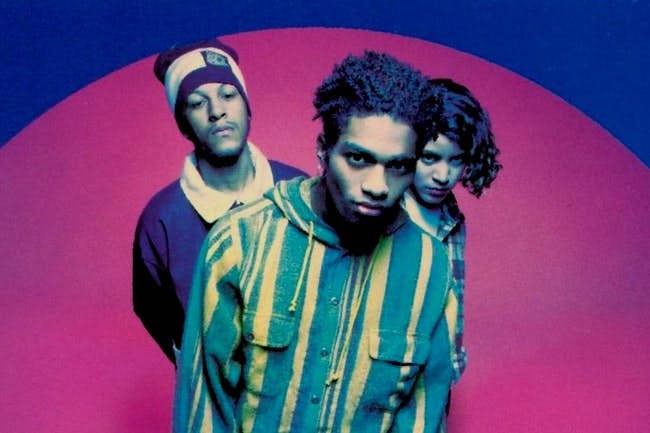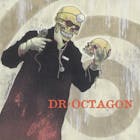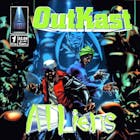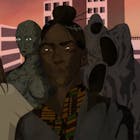It was also a declaration for a city that was embracing its uniquely Black perspective and culture; Atlanta became ground zero for a kind of Black eclecticism that OutKast (and the rest of their Dungeon Family compatriots epitomized). The Dirty South wouldn't just be defined by its bloody past; we are going to reimagine its Black future. The message was clear: Atlanta is another planet, and we are your alien guides.
Also orbiting the cosmos around the same time was former Ultramagnetic MC Kool Keith, who reinvented himself as Dr. Octagon the same year that OutKast became ATLiens. Dr. Octagon released Dr. Octagonycologist, a bizarre concept album about a homicidal, time-traveling, extraterrestrial gynecologist traveling the universe at warp speed.
A Tribe Called Quest may not have been explicitly Afrofuturistic in themes and sound, but the cover art for 1996s Beats, Rhymes and Life evokes the subgenre, visually; and their 2016 reunion album has tracks like “Space Program” that posits that outer space is the last outpost for white supremacist ideas and “there ain’t a space program for niggas. You stuck here, nigga.” And their Native Tongue cohorts De La Soul launched their Art. Official. Intelligence. would-be trilogy in 2000, which embraced futuristic imagery in their artwork even though the album's themes weren't definitively Afrofuturistic.
RZA's first solo effort outside of Wu-Tang Clan was his Bobby Digital In Stereo project, which, like Dr. Octagonecologyst, was built around a futuristic alter ego. The project referenced RZA's Five Percent leanings and the teachings of "mathematics" while also emphasizing his love of science fiction. "I would mix in my love for comic books," RZA explained at the time. "It was a mixture of fiction and reality together to make a character I thought would be entertaining."
But perhaps more than any other popular artist in Hip-Hop (save for OutKast), Missy Elliott seemed to embody the possibilities inherent in Afrofuturistic literature and visuals.









